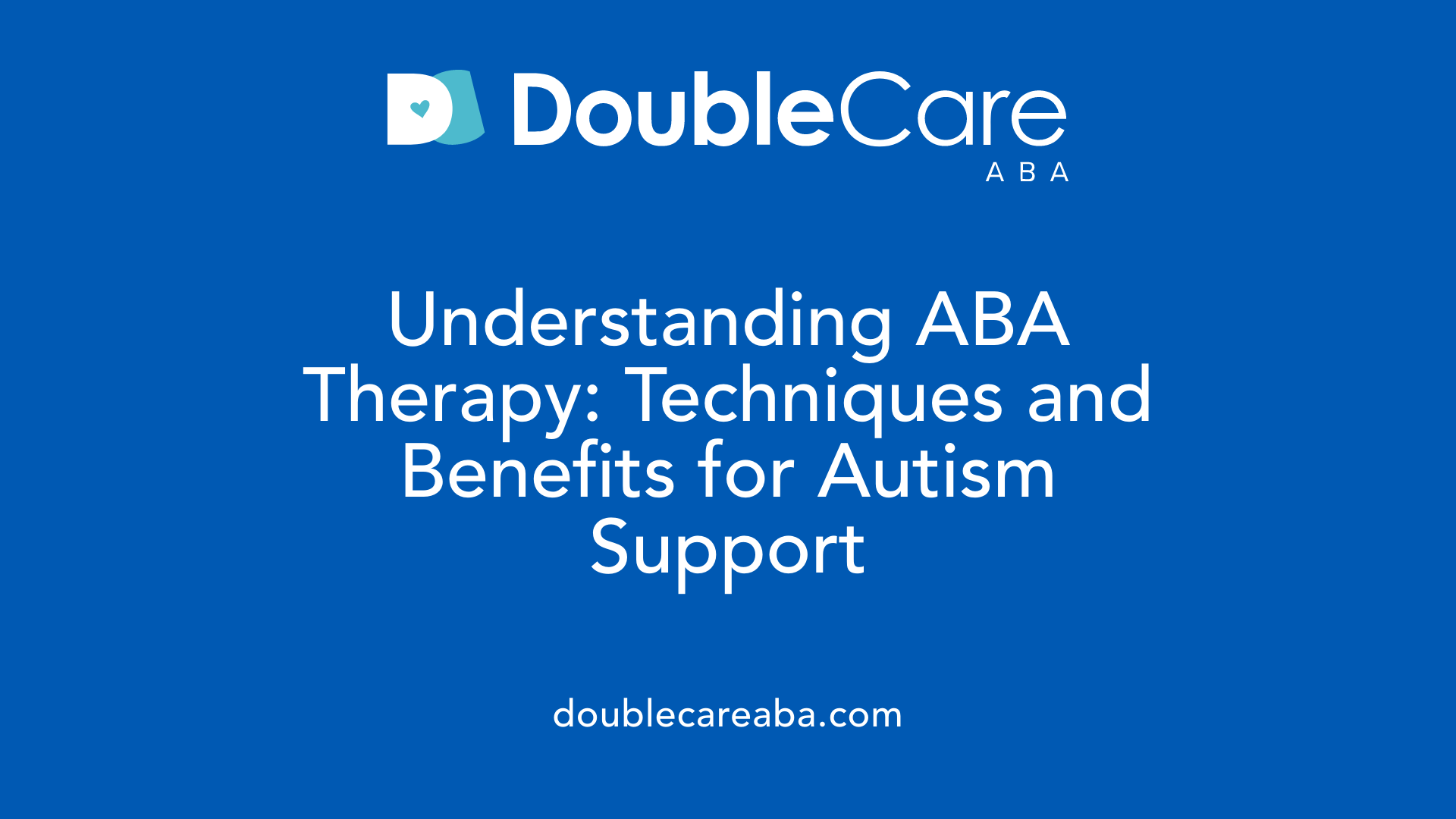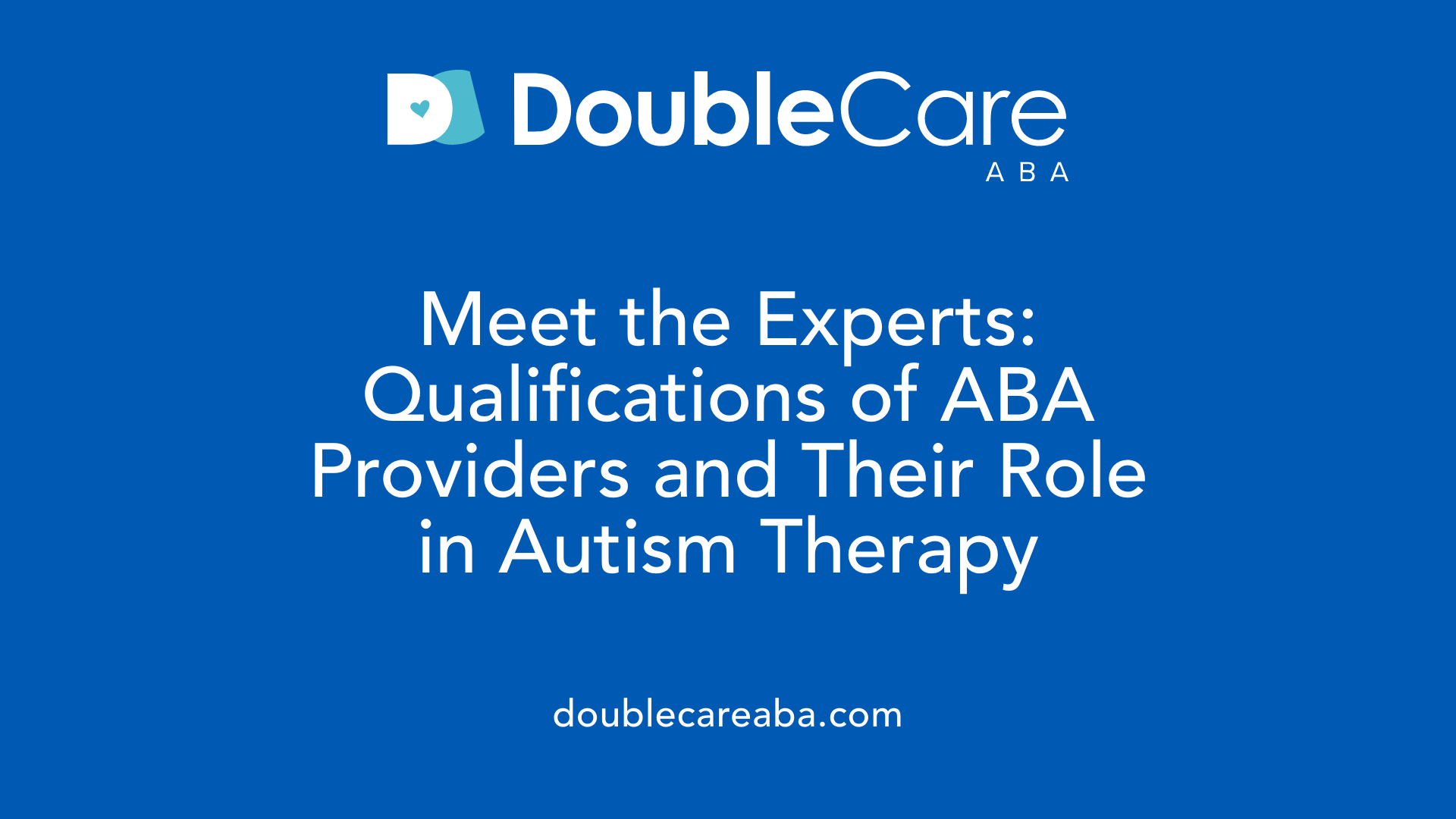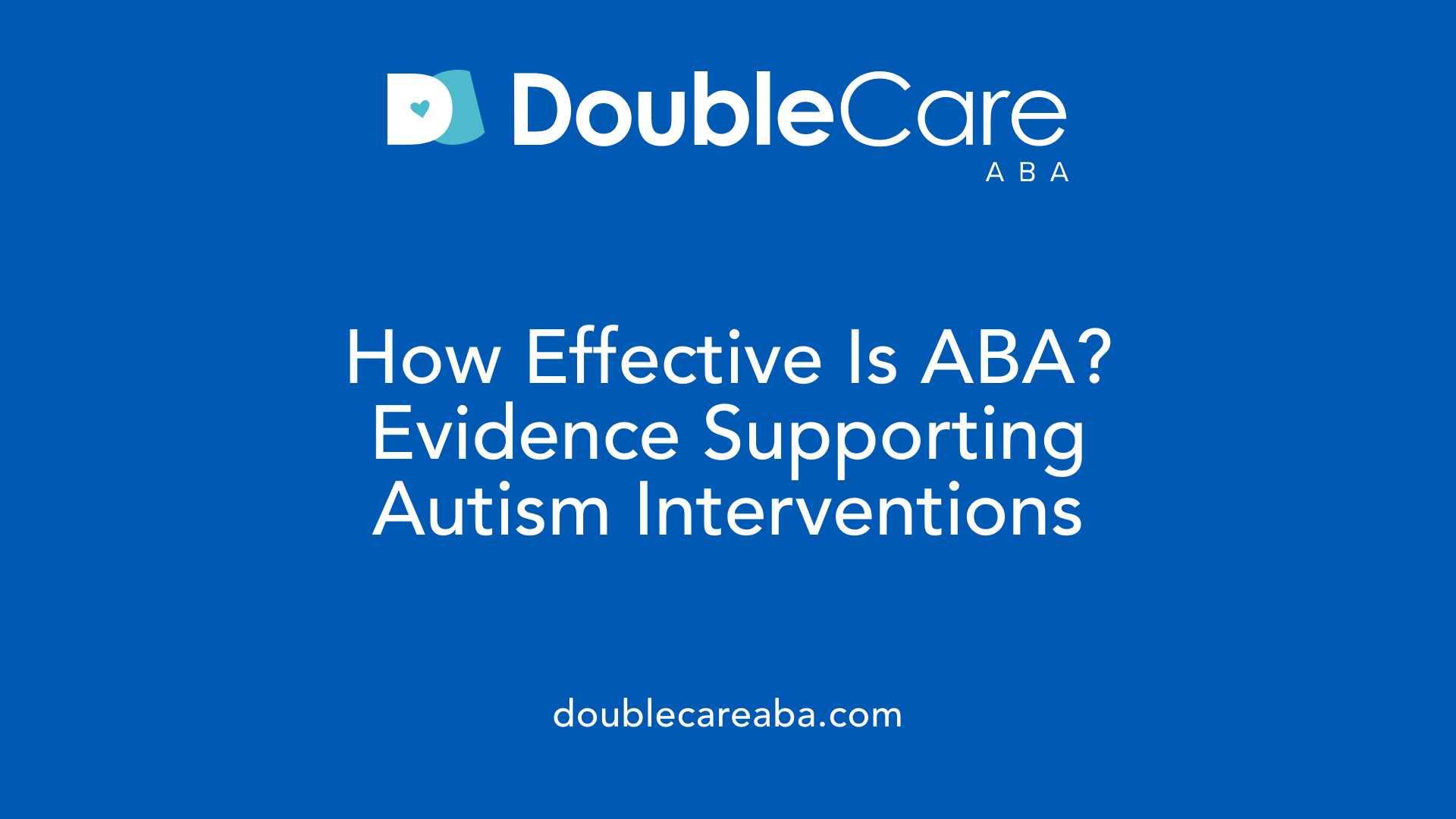Understanding Parenthood and Autism
Parenting as an autistic individual brings unique challenges and strengths often misunderstood by society. Despite persistent stereotypes and systemic biases, autistic people can and do raise children successfully. This article explores the realities of autistic parenthood, including the role of behavioral therapies like Applied Behavior Analysis (ABA), the importance of supportive resources, and the social and legal obstacles faced by these parents. By emphasizing evidence and personal adaptation, we aim to shed light on how autistic people navigate parenthood with compassion, resilience, and skill.
The Reality of Parenting with Autism: Challenges and Strengths

Can autistic people have kids?
Yes, autistic individuals can and do become parents and raise children successfully despite societal misconceptions. Autism does not prevent a person from providing loving and effective parenting.
Social misconceptions about autistic parents
Autistic parents often face unfounded societal biases and stereotypes that question their ability to parent effectively. These misconceptions can create significant external pressures and emotional challenges for autistic parents.
Sensory challenges in autistic parenthood
Sensory sensitivities are common among autistic parents. Managing overwhelming sensory input often requires adaptive strategies, such as wearing noise-canceling headphones, strategically scheduling quiet times, and establishing sensory boundaries. These techniques help maintain the parent's wellbeing and model personal autonomy for their children.
Adaptations autistic parents make
Parenting styles of autistic individuals may differ from societal norms. For example, some parents may rely on stricter schedules or engage less in typical social activities. These adaptations support their unique needs and do not reflect inadequate parenting, though they can lead to internalized shame due to societal expectations.
Empathy and emotional attunement in autistic parents
Contrary to stereotypes, many autistic people have a strong capacity for empathy. Their experiences of trauma and societal misunderstanding often deepen their emotional attunement, benefiting their relationships with their children.
Internalized shame due to societal expectations
Many autistic parents experience internalized shame stemming from societal pressures to conform to conventional parenting standards. Strategies such as self-compassion, mindfulness, and radical self-acceptance are recommended to reinforce confidence and reduce this shame.
Importance of support systems
Given the social stigma autistic parents face, traditional social networks may be limited. Building solid support systems, including professional help and self-care routines, is essential to mitigate exhaustion and enhance parenting satisfaction.
Applied Behavior Analysis (ABA) Therapy: What It Is and How It Supports Autism

What is Applied Behavior Analysis (ABA) therapy, and how is it used to support individuals with autism?
Applied Behavior Analysis (ABA) therapy is a scientifically validated approach that applies learning and behavior principles to help individuals with autism develop essential skills and reduce challenging behaviors. It focuses on observing and analyzing behavior in specific settings, then using strategies like positive reinforcement to encourage desirable actions and minimize problematic ones.
Behavioral analysis principles
ABA is grounded in behavioral science, which studies how behavior changes in response to environmental stimuli. By systematically analyzing behavior patterns, therapists can identify what triggers or maintains behaviors and design interventions that promote positive change.
Use of positive reinforcement
A core technique in ABA is positive reinforcement, where rewarding desired behaviors increases their likelihood of repeating. Rewards are tailored to the individual's preferences, helping motivate learning and adherence to new skills.
Target areas of ABA (communication, social skills, self-care)
ABA therapy targets multiple life areas vital for functioning and independence. These include improving communication abilities, enhancing social interactions, developing self-care routines, and boosting academic skills. The breadth of focus ensures that therapy supports overall quality of life.
Customization and delivery settings
ABA programs are highly individualized, customized to meet each person's unique strengths and challenges. They can be delivered in various settings such as the home, school, or community environments. Instruction may be one-on-one or in group formats, adapting to the individual's needs and promoting generalization of skills.
Research consistently demonstrates that early and intensive ABA interventions lead to meaningful gains in socialization, language, cognition, and adaptive behavior among individuals with autism. This evidence underlines ABA's role as a cornerstone in autism support and treatment.
Who Provides ABA and Their Qualifications

Roles of Board Certified Behavior Analysts (BCBAs)
Board Certified Behavior Analysts (BCBAs) are the primary professionals responsible for designing and overseeing Applied Behavior Analysis (ABA) therapy. They develop individualized treatment plans based on thorough behavioral assessments. BCBAs ensure that therapy targets are meaningful and align with the person's needs.
Training and Certification Requirements
BCBAs must complete a combination of graduate-level coursework, supervised practical experience, and pass a comprehensive certification exam. This rigorous process ensures they possess in-depth knowledge of behavior analysis principles and ethical guidelines. Trained therapists, who often support BCBAs, typically have specialized ABA training and work under BCBA supervision.
Supervision of Therapists
Therapists delivering ABA interventions work closely with BCBAs. They implement treatment plans, collect data on progress, and provide day-to-day support. Regular supervision by BCBAs is crucial to maintain fidelity to intervention protocols, adjust strategies as needed, and optimize treatment outcomes.
Customization and Ongoing Evaluation of Treatment Programs
ABA therapy programs are highly individualized. BCBAs continuously assess the effectiveness of interventions and adjust targets or techniques based on collected data. This dynamic process ensures that therapy is responsive to the evolving needs of each individual, promoting meaningful progress.
| Role | Qualifications | Responsibilities |
|---|---|---|
| Board Certified Behavior Analyst (BCBA) | Graduate degree, supervised experience, certification exam | Designs treatment plans, supervises therapists, evaluates progress |
| Trained Therapist | Specialized ABA training, works under BCBA supervision | Implements interventions, collects data, supports client |
Core Components and Techniques of ABA Therapy
What are the typical components and techniques used in ABA therapy for autism?
Applied Behavior Analysis (ABA) therapy employs several distinct methods to support individuals with autism in developing essential skills and reducing challenging behaviors.
Discrete Trial Training (DTT): This technique breaks down complex tasks into small, manageable steps. Each step is taught systematically with clear instructions, prompts, and reinforcement until mastery is achieved.
Natural Environment Teaching (NET): NET focuses on teaching skills in everyday settings, encouraging generalization of learning. It uses naturally occurring opportunities to prompt learning and emphasizes motivation within daily routines.
Verbal Behavior Interventions: These target communication skills by teaching language functions such as requesting, labeling, and commenting through structured interactions.
Positive Reinforcement: ABA heavily relies on positive reinforcement, providing rewards or praise following desired behaviors to increase their frequency.
Continuous Data-Driven Assessment: Progress is monitored meticulously by collecting data on behaviors and skills. This ongoing assessment guides program adjustments, ensuring goals remain aligned with the child’s evolving needs.
ABA programs are highly individualized and implemented by trained professionals, including board-certified behavior analysts and therapy aides. They focus on enhancing communication, social skills, self-care, and reducing behaviors that interfere with learning or socialization. This structured, evidence-based approach makes ABA a flexible and effective therapy for many individuals on the autism spectrum.
Effectiveness of ABA Therapy for Autistic Individuals

How effective is ABA therapy in improving outcomes for individuals with autism?
Research consistently shows that Applied Behavior Analysis (ABA) therapy is an effective, evidence-based intervention for many autistic individuals. When delivered early and with sufficient intensity, ABA can enhance communication, social abilities, and independence.
ABA focuses on teaching foundational skills such as speech, language development, and daily living activities. It also works to reduce challenging behaviors by using reinforcement strategies that encourage positive behaviors. These improvements support better integration into social settings and increased autonomy.
Enhancements in communication, social skills, independence
The therapy’s structured yet adaptable nature allows children to acquire essential skills that promote meaningful interactions and functional independence. Modern ABA methods emphasize naturalistic and play-based techniques, making learning engaging and personalized.
Importance of early and intensive therapy
Early intervention is crucial, as younger children tend to make more rapid progress. Intensive programs, often involving multiple hours per week, maximize developmental gains and help lay a strong foundation for lifelong skills.
Critiques and considerations for personalization and respect for neurodiversity
Despite its benefits, ABA has faced critiques concerning overly rigid approaches that might suppress individual differences. Current practices strive to respect neurodiversity by tailoring interventions to each person’s strengths and preferences, emphasizing collaboration rather than compliance.
In conclusion, ABA remains a widely supported therapy capable of significantly improving developmental outcomes for autistic individuals when applied thoughtfully and respectfully.
Parenting with Disabilities: Realities and Supports
Common biases and stereotypes faced by disabled parents
Parents with disabilities frequently confront unfair assumptions about their ability to parent effectively. These stereotypes often target individuals who are deaf, blind, or have intellectual disabilities, casting doubt on their competence without considering their actual strengths. Such biases can overshadow the real capabilities many disabled parents demonstrate.
Legal system discrimination
The legal system sometimes perpetuates ableist views, resulting in disproportionately high rates of child removal from parents with disabilities. These biases can also impose restrictions on custody or adoption rights, reflecting systemic challenges that parents with disabilities must often navigate.
Psychological assessments focusing on strengths
To counteract these biases, psychological evaluations of parents with disabilities should be culturally sensitive and equitable. Emphasizing the parents’ strengths and needs rather than deficits provides a fairer assessment and better understanding of their parenting capacity.
Supportive services and parent training
Parents with disabilities benefit greatly from tailored support services. Psychologists play an important role by providing parent training and skill-building workshops that empower parents to enhance their parenting skills and confidence. These services help create fulfilling parenting relationships and foster positive developmental outcomes for children.
Advocacy for equal access to resources
Advocacy is crucial to ensure parents with disabilities receive equal access to parenting resources and support. By working to eliminate barriers and promoting inclusive policies, psychologists and allies contribute to more equitable parenting opportunities and improved family well-being.
Navigating Parenthood as an Autistic Person: Strategies and Support
How Do Autistic Parents Manage Parenting Challenges?
Autistic parents often face unique sensory challenges that require careful management. Many find relief by using noise-canceling headphones, setting aside quiet times to decompress, or establishing sensory boundaries to teach their children about personal autonomy. These methods help maintain a manageable sensory environment for both parent and child.
Adapting Parenting Styles
Parenting styles among autistic individuals may differ from societal norms. Many adopt stricter schedules and may avoid some typical social activities to better suit their needs. Such adaptations are not indicators of poor parenting but necessary adjustments. Unfortunately, these changes can sometimes lead to internalized shame due to external expectations.
Self-Compassion and Mindfulness Techniques
To counteract feelings of shame and boost confidence, autistic parents are encouraged to practice self-compassion, mindfulness, and radical self-acceptance. These approaches support emotional well-being and help parents embrace their unique styles.
Importance of Support Systems
Social stigma often restricts autistic parents from accessing conventional social networks, making support systems especially important. Connecting with others who understand their experiences can provide emotional validation and practical advice.
Hiring Help and Prioritizing Self-Care
Given the emotional and physical demands of parenting, autistic parents benefit significantly from hiring additional help and prioritizing self-care. This approach alleviates exhaustion and supports sustained parenting engagement and satisfaction.
Genetics, Infertility, and Autism Risk: Understanding the Facts

Prevalence of Autism and Developmental Disabilities
Autism spectrum disorder (ASD) affects approximately 1 in 68 children in the United States, highlighting a significant prevalence compared to many other conditions. Developmental disabilities like ASD occur more frequently than many physical disabilities, making the understanding of their risk factors an important public health focus.
Links Between Infertility Treatments and Autism Risk
Recent studies funded by the NIH indicate that infertility on its own does not strongly increase the risk of ASD in children. However, some specific infertility treatments—particularly male infertility cases requiring testicular sperm extraction (TESE) and intracytoplasmic sperm injection (ICSI)—have been linked to a higher likelihood of having offspring with autism.
Factors Influencing Autism Risk Including Parental Age and Prenatal Conditions
Several factors independent of infertility itself have been associated with an elevated risk of ASD. Advanced paternal age, especially fathers over 50, is thought to contribute through genetic mutations accumulated in sperm over time. Maternal health factors such as excessive weight gain during pregnancy, polycystic ovarian syndrome (PCOS), and prenatal exposure to selective serotonin reuptake inhibitors (SSRIs) are also recognized contributors.
Clarifying Myths About Infertility and Autism Risk
It is crucial to dispel misconceptions that infertility inherently raises the risk of autism. Research shows infertility itself is not a predictor of ASD, shifting focus instead to specific treatments and parental factors. Understanding these nuances can help prospective parents make informed decisions and reduce unnecessary anxiety.
| Topic | Detail | Notes |
|---|---|---|
| ASD Prevalence | 1 in 68 children in the U.S. identified with ASD | Higher than many physical disabilities |
| Infertility and Autism | No strong direct link between infertility and ASD | Infertility treatments like TESE and ICSI show some linkage |
| Advanced Paternal Age | Increased ASD risk with fathers over 50 | Related to genetic sperm mutations |
| Maternal Health Factors | PCOS, weight gain, and prenatal SSRIs exposure linked to ASD risk | Influences prenatal environment |
Expanding Understanding and Support for Autistic Parents
Autistic individuals absolutely can and do become loving, effective parents, navigating their unique challenges through adaptations, support systems, and professional therapy like ABA. Breaking down societal biases and legal hurdles is essential to ensure they have equitable opportunities to parent and nurture their children. Psychological support tailored to their needs, combined with acceptance and resource accessibility, empowers autistic parents to foster positive family dynamics. As research continues to evolve, increased awareness and targeted services will further improve outcomes not only for autistic individuals but for their children as well, affirming that parenting is defined not by neurotypical norms but by love, dedication, and resilience.
References
- APA Resolution on Parents With Disabilities
- Infertility and Autism Spectrum Disorder
- The Strengths and Struggles of Being an Autistic Parent
- Applied Behavior Analysis (ABA)
- What to Consider When Looking for a Qualified ABA Provider
- Applied Behavior Analysis (ABA)
- The effectiveness of applied behavior analysis program ...
- The Controversy Around ABA















